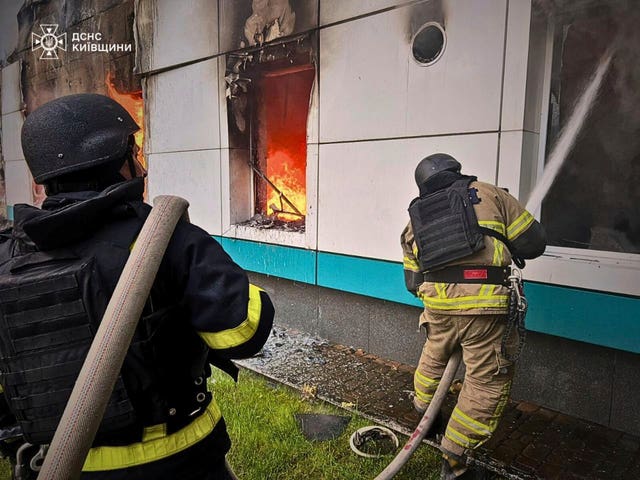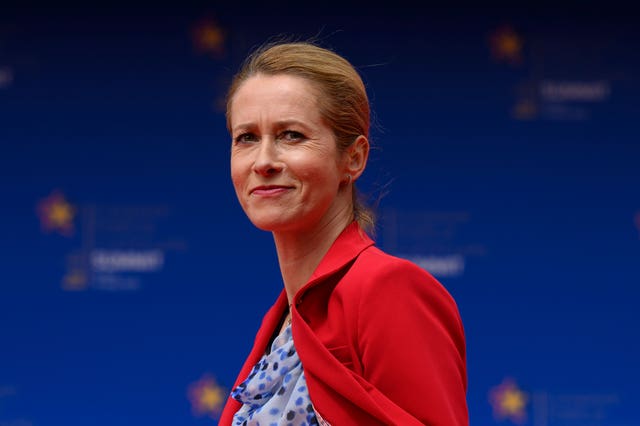Slow progress dampens hopes for Russia-Ukraine peace deal
Ukraine has offered a comprehensive 30-day ceasefire, which Moscow has effectively rejected by imposing far-reaching conditions.

US President Donald Trump’s phone calls with the leaders of Russia and Ukraine deepened expectations that progress might soon be made on ending the war, though frustration at the slow pace of negotiations and the absence of any significant breakthrough kept hopes low.
“It is obvious that Russia is trying to buy time to continue the war and occupation,” Ukrainian President Volodymyr Zelensky said on Tuesday on Telegram.
“We are working with partners to put pressure on the Russians to behave differently,” he added in an apparent reference to further international sanctions on Russia.
Ukraine has offered a comprehensive 30-day ceasefire, which Moscow has effectively rejected by imposing far-reaching conditions, and Mr Zelensky proposed a face-to-face meeting with Russian President Vladimir Putin but the Russian leader spurned that offer.
Mr Trump said his personal intervention was needed to push peace efforts forward, and on Monday he held separate talks over the phone with Mr Zelensky and Mr Putin.
Russia and Ukraine will “immediately” begin ceasefire negotiations, Mr Trump announced, though there was no detail on when or where such talks might take place.
“The status quo has not changed,” Mykhailo Podoliak, a senior adviser to Mr Zelensky, wrote on social media platform X on Tuesday.
US officials have for the past few months urged Russia and Ukraine to reach a settlement, as Mr Trump sought a swift end to Europe’s biggest conflict since the Second World War.
Mr Trump said his talks with Mr Putin on Monday were “excellent”, but European officials were sceptical about Russia’s intentions.
“Putin has never changed his position,” Estonian defence minister Hanno Pevkur said in Brussels on Tuesday. “Russia actually doesn’t want to end this war.”

The European Union’s foreign policy chief, Kaja Kallas, said Russia’s failure to negotiate in good faith should trigger threatened US sanctions.
“We really haven’t seen, you know, the pressure on Russia from these talks,” she told reporters.
She was speaking as the EU agreed to impose fresh sanctions on Russia, notably targeting almost 200 ships from the shadow fleet illicitly transporting oil to skirt western restrictions put in place over Moscow’s war in Ukraine.
The 27-nation bloc targeted 189 ships in all, and imposed asset freezes and travel bans on several officials as well as on a number of Russian companies. The measures were endorsed by EU foreign ministers in Brussels.
Ms Kallas said that while President Putin “feigns interest in peace, more sanctions are in the works. Russia’s actions and those who enable Russia face severe consequences”.
Russia uses its “shadow fleet” of ships to transport oil and gas, or to carry stolen Ukrainian grain. The EU has now targeted almost 350 of the ships in total.

“We have made clear again and again that we simply expect one thing from Russia now: namely, a ceasefire, unconditional and immediate,” German foreign minister Johann Wadephul said in addressing the sanctions.
“We welcome the fact that Ukraine is still prepared to do this. We note with disappointment that Russia has not yet taken this decisive step, and we will have to react to this.”
In parallel, the UK targeted the shadow fleet in a raft of 100 new sanctions that it said are aimed at “ramping up pressure” on the Kremlin.
“Putin’s latest strikes once again show his true colours as a warmonger,” Foreign Secretary David Lammy said. “We urge him to agree a full, unconditional ceasefire right away so there can be talks on a just and lasting peace.”
Also, some were unconvinced by Mr Putin’s promise to Mr Trump that Russia is “ready to work with” Ukraine on a “memorandum” outlining the framework for “a possible future peace treaty”.
“It appears that Putin has devised a way to offer Trump an interim, tangible outcome from Washington’s peace efforts without making any real concessions,” Tatiana Stanovaya, a senior fellow at the Carnegie Russia Eurasia Centre, said on X.
The warring countries are insisting on apparently irreconcilable conditions for peace, and even a temporary truce has been out of reach.
The first direct Russia-Ukraine peace talks since the early weeks of Moscow’s 2022 invasion ended after less than two hours last Friday, and while both sides agreed on a large prisoner swap, they clearly remained far apart on key conditions for ending the fighting.





